Whether they like it or are even aware of it, consumers are constantly bombarded with advertising online. Banner ads, pop-ups, Google Ads, in-stream videos, emails, Instagram stories – there are even ads on messenger apps now.
But despite, or perhaps because of these so-called modern innovations, the age old problem of youth marketing remains: how do brands actually cut through all the noise and grab people’s attention long enough to sell them something?
This question is even more pressing when you’re trying to engage the Gen Z market, who in their limited time here have grown up as digital natives and become far more tech-savvy than we could ever hope to be.
We know that their online habits are vastly different to ours – that much has been obvious since Facebook was labelled the social media platform for ‘old’ people and the word ‘yeet’ was invented. We also know that digital technology has completely changed the relationship young people have with corporations and advertising, throwing those old concepts of brand loyalty and trust straight out the window.

So with countless ways to actually make an ad and little understanding of what youth like and don’t like online, the road to effective youth marketing appears to be a hazy one.
However thanks to Year13’s YouthSense research, we now know that a whopping 79% of young people prefer when brands sponsor or create their own online content over traditional advertising.
This means videos and articles, whether hosted on your own channels or in partnership with other companies and publishers, are more effective at getting your organisation’s message across than things like banner ads and print ads, especially when the content can offer consumers useful information.
Below is an example of a piece of branded content we did for the NSW Government.
Here’s How Ryan’s VET Path Helped Him Achieve His Career Goals In Jewellery and Business Ryan may have bombed in school but now he’s running the show with his own jewellery business. Check out his story to find out how his vocational education & training (VET) helped him achieve that. Check out Part 2 here: http://bit.ly/2YJIoeE Posted by Year13 on Monday, 20 May 2019
Over 60,000 young people watched the video with many liking, sharing and tagging their mates. It’s this sort of engagement that companies are after instead of people just scrolling past an ad.
Our insights are part of our youth marketing report What Gen Z Actually Do Online – Social & Digital Media Trends 2019. Our findings come from surveying more than a thousand 15 to 24-year-olds to identify their online habits. A full breakdown of their attitudes towards different platforms and advertising methods can be found inside.
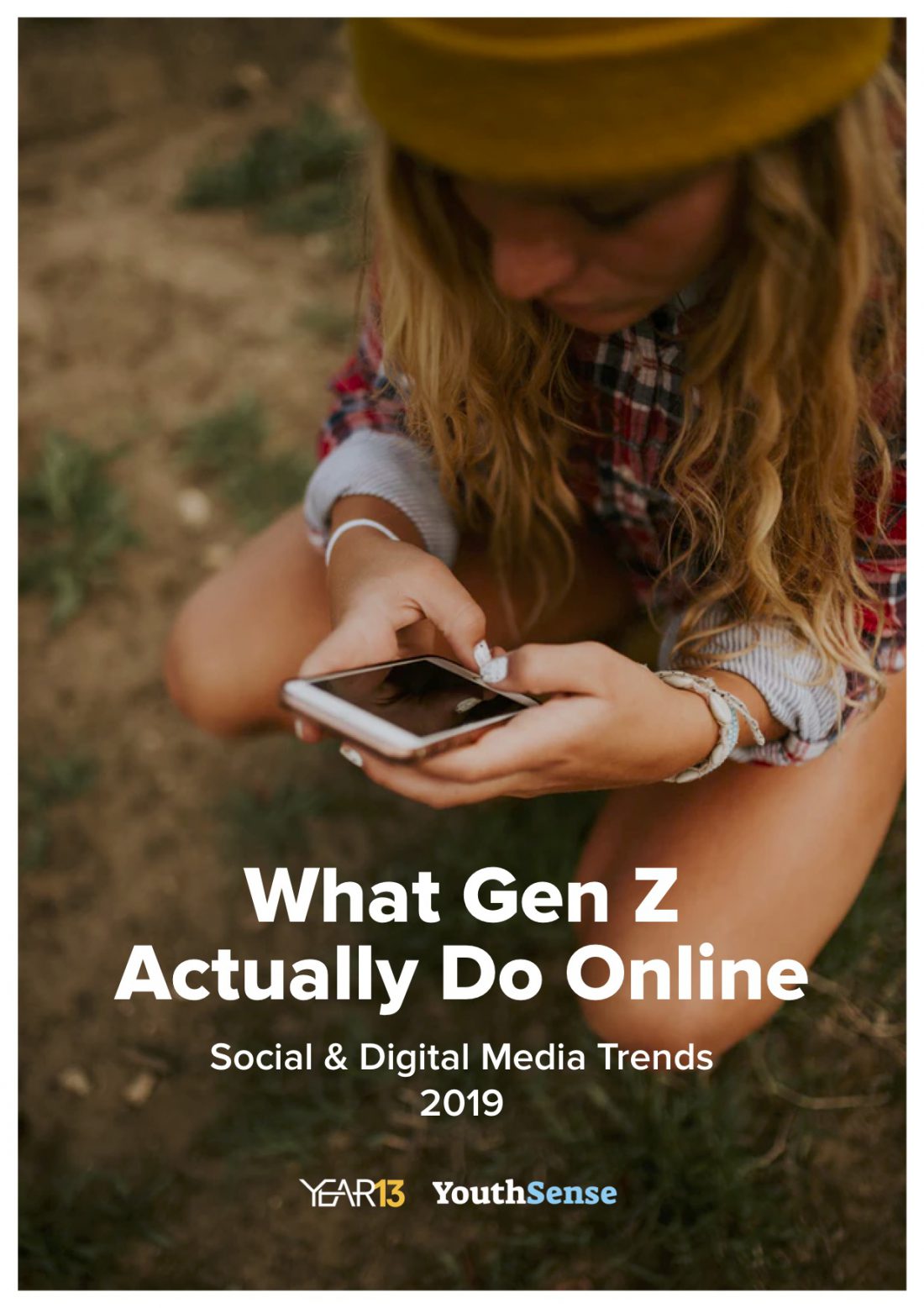
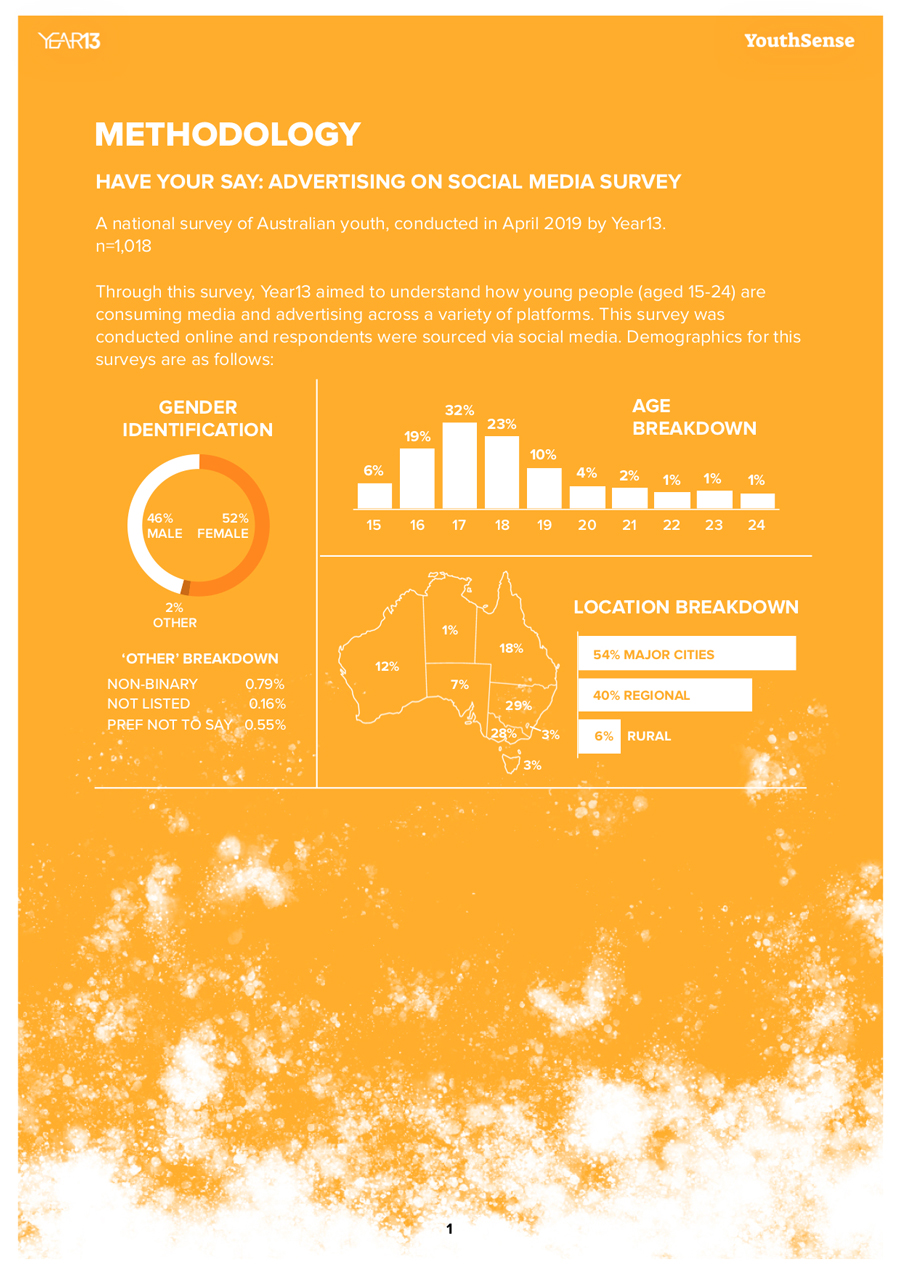
A matter of trust
One respondent, a 19-year-old female from NSW, summed up our findings when asked what brands can do to make people trust them more online.
“Rather than use in-your-face, unskippable or obtrusive ads, I suggest creating content that is more emotionally engaging, similar to a miniature story,” she said.
“Take out the pushy ‘advertising’ aspect and create content that people will actually stick around to watch and enjoy – and even have relatively good brand recall after!
More On Bianca’s VET Journey & Career Achievements Bianca studied an apprenticeship through vocational education & training (VET) and got the skills to succeed as a hairdresser, as well as the confidence to live her best life 💅🏼 Check out Part 1 here: http://bit.ly/2HsZlUH Posted by Year13 on Sunday, 12 May 2019
“If you make consumers think that you care about them more, or are simply there to entertain them as they go about their daily habits online, they won’t be as skeptical that you’re trying to push a product or service onto them.”
The value this kind of digital advertising holds comes as no surprise to anyone who’s paid the slightest bit of attention to the demise of traditional media. This, of course, is even more prevalent amongst the youth market; just 7% of Gen Z use print media everyday, compared to 76% for online websites and 94% for social media.
However, not all things digital are created equal and there’s a hierarchy even when it comes to the most up-to-date youth marketing methods. Ads that interrupt video or audio content are deemed the worst of the bunch, with 75% of Gen Z saying they dislike ads on movie/TV streaming platforms and 85% saying they dislike them on music streaming platforms.
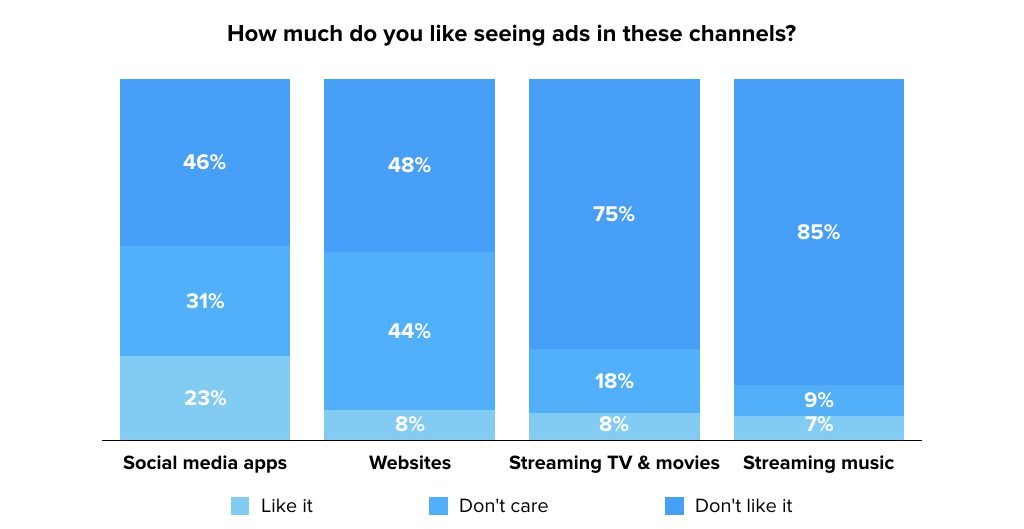
What’s more, 41% of young people admitted they use Adblockers, meaning many kinds of online ads aren’t even being delivered to nearly half the youth market.
This suggests that brands and corporations need to be more creative with their marketing efforts and use content to relay their key messaging to youth. One of our survey respondents, a 17-year-old female from Queensland, agrees.
“Use branded content and non invasive advertising,” she said.
“Also, build more [of] a personal connection with users since this is what builds trust, so it helps to be relatable. For example, [provide] more info on the writers and less formal sounding content.”
Checkout more stories about Gen Z’s media habits:
- Gen Z Tell How Best To Use YouTube Influencers For Youth Marketing
- What Teens Actually Do Online Will Surprise You
- The Best And Worst Places To Advertise To Gen Z Online
By providing useful and engaging content, companies are aligning their advertising with the natural media consumption behaviours of their users. A 22-year-old male from Victoria reinforced the effectiveness of this approach.
“Offer genuine value to customers through sharing interesting and unique content,” he suggested.
Businesses doing it right
The concept of a company producing content relevant to their target audience isn’t unique to the digital age. Just take a look at the Michelin Star Guide, which wasn’t actually created by a food and hospitality authority but by a French tyre company to encourage travel and thus increase the demand for their products.
Nowadays with articles and videos delivered straight to our devices via Facebook and Instagram feeds, most businesses should be creating content as a way to communicate to their audience by now.
One notable example comes from international accommodation booking site Hostelworld. With a well-defined audience of budget travellers, their blog and social media channels are full of travel tips, destination guides, listicles, and adventure stories.
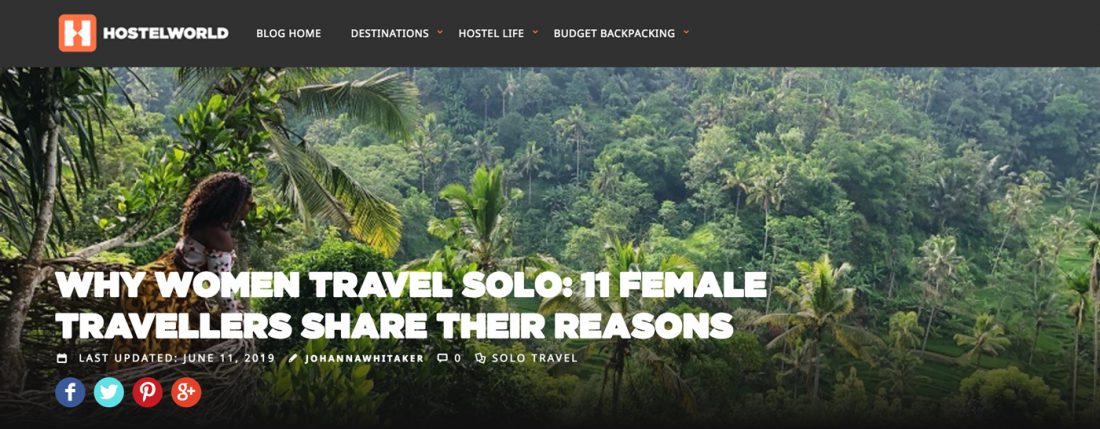
This content is extremely engaging for those with an overseas trip planned, which makes for a seamless transition from reader to user of their service.
In Australia, real estate company Domain has remained a leader in the property space by publishing articles featuring interior design, overlooked suburbs, commercial property news and expert advice.
Canva, a graphic design tool website lauded for its simplicity and ease of use, follows suit with content that’s helpful for those using their service. Their content marketing involves how-to guides and other instructional material to help users create good design work.
Communicating effectively
However, few brands are actually able to engage their audience as effectively and authentically as the above have. In fact, our research shows that 73% of young people say older generations don’t communicate with them effectively, meaning marketing teams are often speaking an entirely different language to their supposed Gen Z audience.
Sponsored or branded content campaigns are an effective way to address this problem. By partnering with organisations that specialise in youth marketing, companies are able to leverage the other’s expertise and brand profile for more powerful engagement.
Of course, it’s important that partnerships are genuine when it comes to branded content. Gen Z are especially great at sniffing out obvious money grabs or realising a video has nothing to do with the companies sponsoring or creating it. Inauthentic content will break a young person’s trust in your brand, but real and relatable stories will deepen it.
More On Hannah’s VET Journey & Career Achievements Hannah’s not just a gun graphic designer – she’s worked on music festivals, runs creative workshops and owns her own business. Check out this interview to find out how vocational education & training has helped her along the way. ⠀⠀⠀⠀⠀⠀⠀⠀⠀ Check out Part 1 of out interview here: http://bit.ly/2XQQS3y Posted by Year13 on Tuesday, 11 June 2019
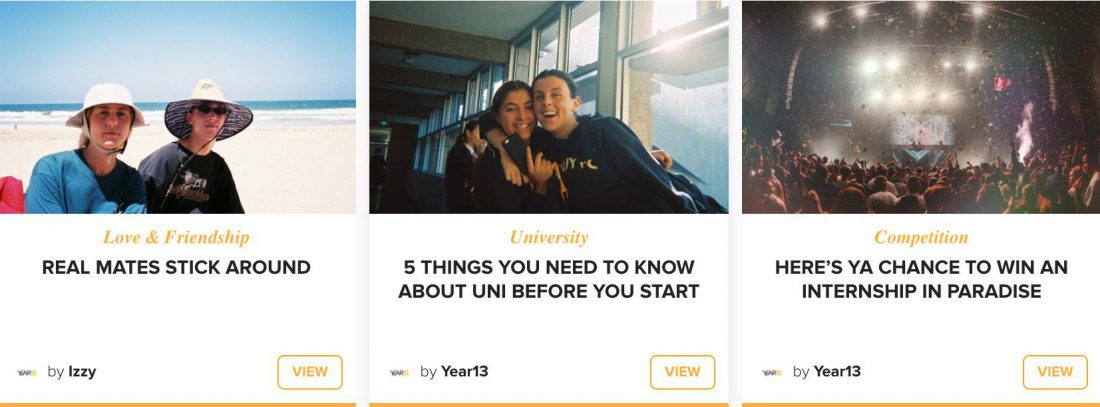
On Year13 our platform has become the leading destination for young people to seek advice about their post-school options, including education, employment, travel and general life advice. Companies in these spaces looking to engage the youth market are able to partner with us through a branded content campaign where we produce written or video content to relay their key messaging.
Despite the commercial aspect, branded content on Year13 remains true to our core mission of helping young people first and foremost. This, along with sustaining our unique brand voice, means we maintain our authenticity throughout the content. Our strategy and approach comes from years of experience in youth engagement, as well as the data and insights gained from our exclusive research.
Grab a free copy of our What Gen Z Actually Do Online report for more unique data and insights about Gen Z.






